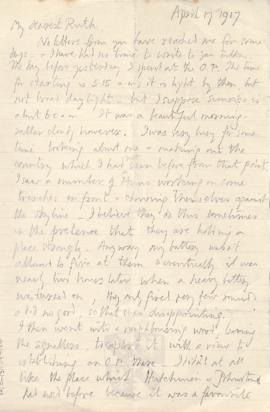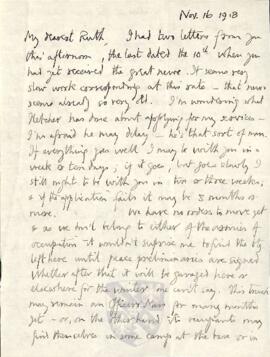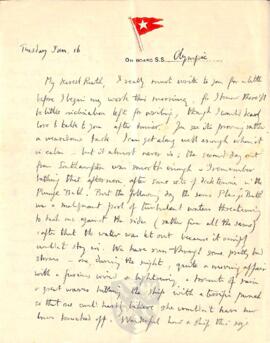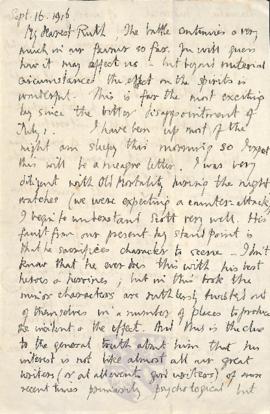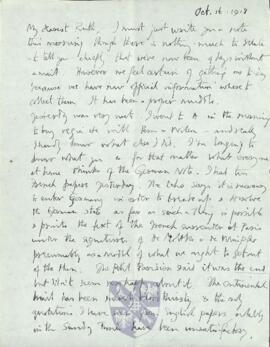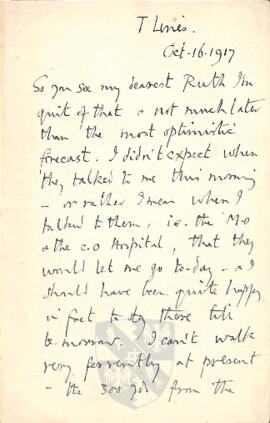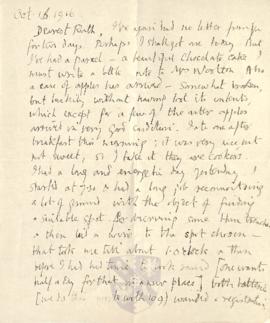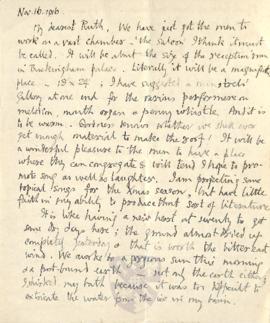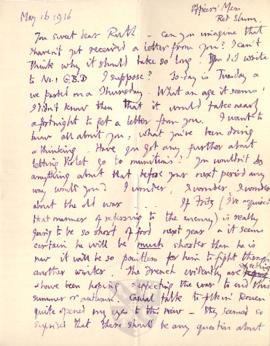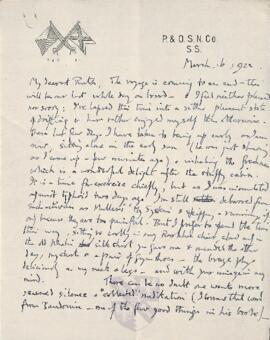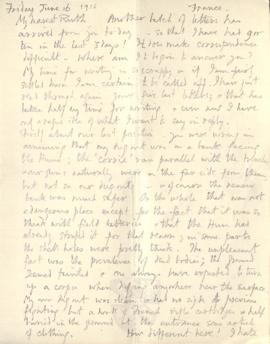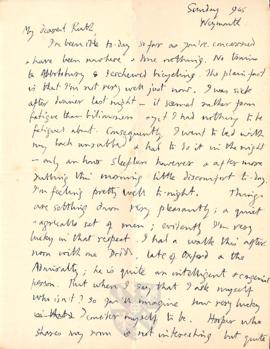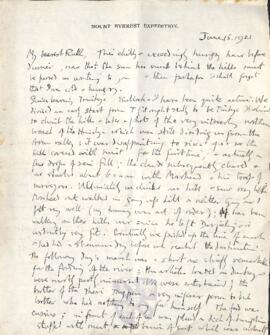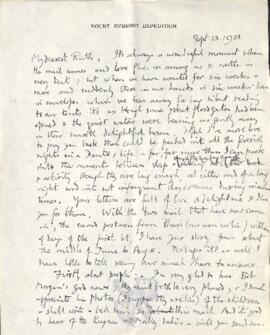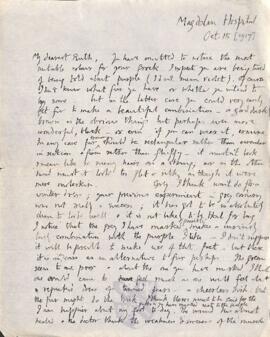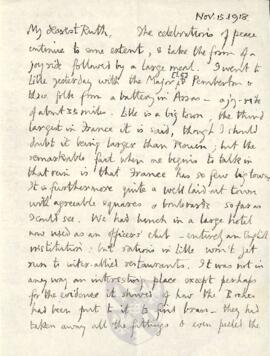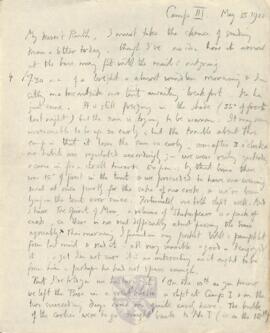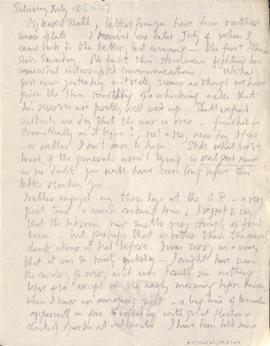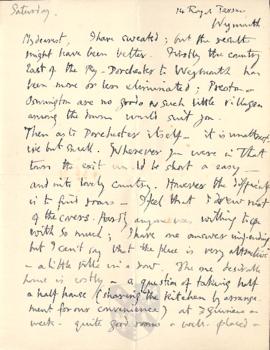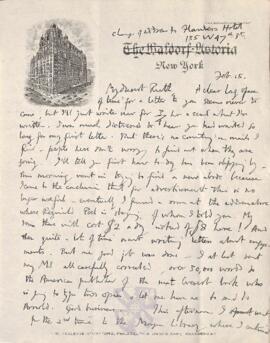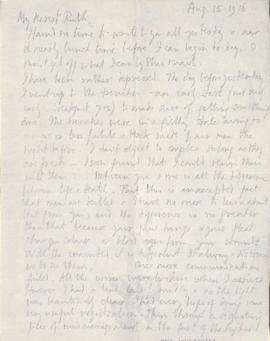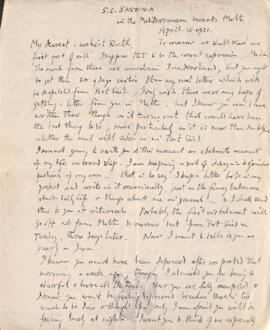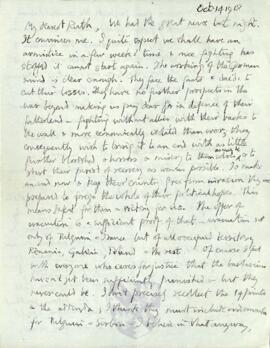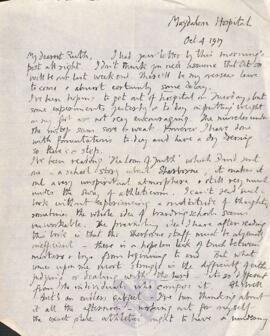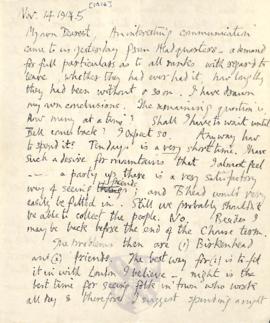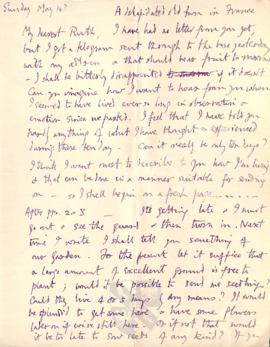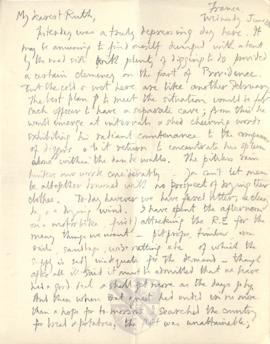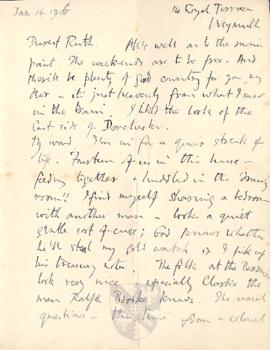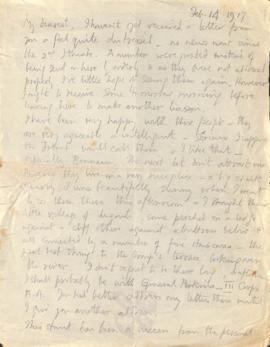Letter from George to Ruth Mallory from Tinkye Dzong
Full transcript
Darling Ruth,
This is only a hurried line at the end of a full day - to tell you (1) that my tummy is in perfect order again, & I feel as fit as possible. It was a funny go altogether & quite inexplicable. Naturally there was a small appendicitis scare as the tenderness was on the right side, but Somervell was practically sure from the start that I was free from that.
(2) Beetham came on with us. It was Somervell’s decision on the very morning of leaving Kampa Dzong – that is to say S [Somervell] had to decide that B [Beetham] would get better; & no doubt he is right. But it is one thing to have no more dysentry & another to get really fit again after all that when living at this altitude. At present B [Beetham] looks years older in much the same way as Raeburn did in ’21, only at a younger stage & has quite lost all kick & there was no one more energetic earier. Still he may be a useful reserve climber in the end.
(3) I’ve had a brain wave – no other word will describe the process by which I arrived at another plan for climbing the mountains;-
(a) A. & B. with 15 porters (about) starting from IV (North Col) establish V building emplacements for 4 tents at about 25,500 & descend.
(b) C. & D. gassless party go to V with another 15 porters of whom 7 carry loads & descend, the other 8 group without loads practically speaking & sleep.
(c) C. & D. proceed to establish a camp VII at 27,300 (about) with these 8 porters carrying up 6 loads.
(d) E. & F. gas party on the same day as (c) start wthh 10 porters (about) from IV, go without loads to V & from that point E. & F. using oxygen they take on the stores & gas previously dumped at V about 1,000ft higher to VI at 26,500.
(e) Then the two parties start next morning & presumably meet on the summit.
You will readily perceive the chief merits of this plan; - the mutual support which the two parties can give each other; the establishment of camps without waste of reserve climbers (A. & B. will not have done so much that they can’t recover); the much better chance this way of establishing VI without collapse of porters. And then if this go fails we shall be in the best possible position to decide how the next attempt should be made; four climbers we hope will be available & the camps either way will be all ready.
This plan has such great advantages over all others that Norton has taken it up at once & this evening we had another pow wow & everyone has cordially approved. I’m much pleased about this as you may imagine - if only for this it seems worth while to have come; for Norton’s plan was fundamentally unsound I’m sure & might have had very bad results; & in this one there is much greater safety. It is impossible yet to say who the parties will be. N [Norton] & I have talked about it; he thinks Somervell & I should lead each one of these two parties; he puts himself in my hands as to whether he should be one of them – isn’t that generous? We shall have to judge as best we can of people’s fitness when we reach the Base Camp. Odell has not been showing up well; but either he or Irvine must be of the gas party.
We have stayed one day here for transport, as against 3 last year when Longstaff was ill; & we hope only to stay one day at Shekar, & so we should be two or three days up at the Base Camp.
No mail yet – one should have arrived today.
Much love to you.
Ever your loving, George
I didn’t tell you that I bought a pony at Kampa Dzong, a very good animal, though too thin.

